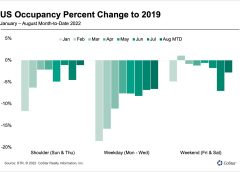
Conferences, Group Events Become Most Essential Types of Business Travel
[ad_1]
Well past the second anniversary of the pandemic, business travel is finally starting to recover.
The timing of the recovery is perfect given that the school year has begun across most of the U.S. and the strong leisure demand of the past year is starting to wane, as evidenced by softening weekend hotel occupancy. Business travel recovery is signaled by continued improvements in weekday hotel occupancy since the start of the year as well as signs of recovery in traditionally business-focused urban hotels.
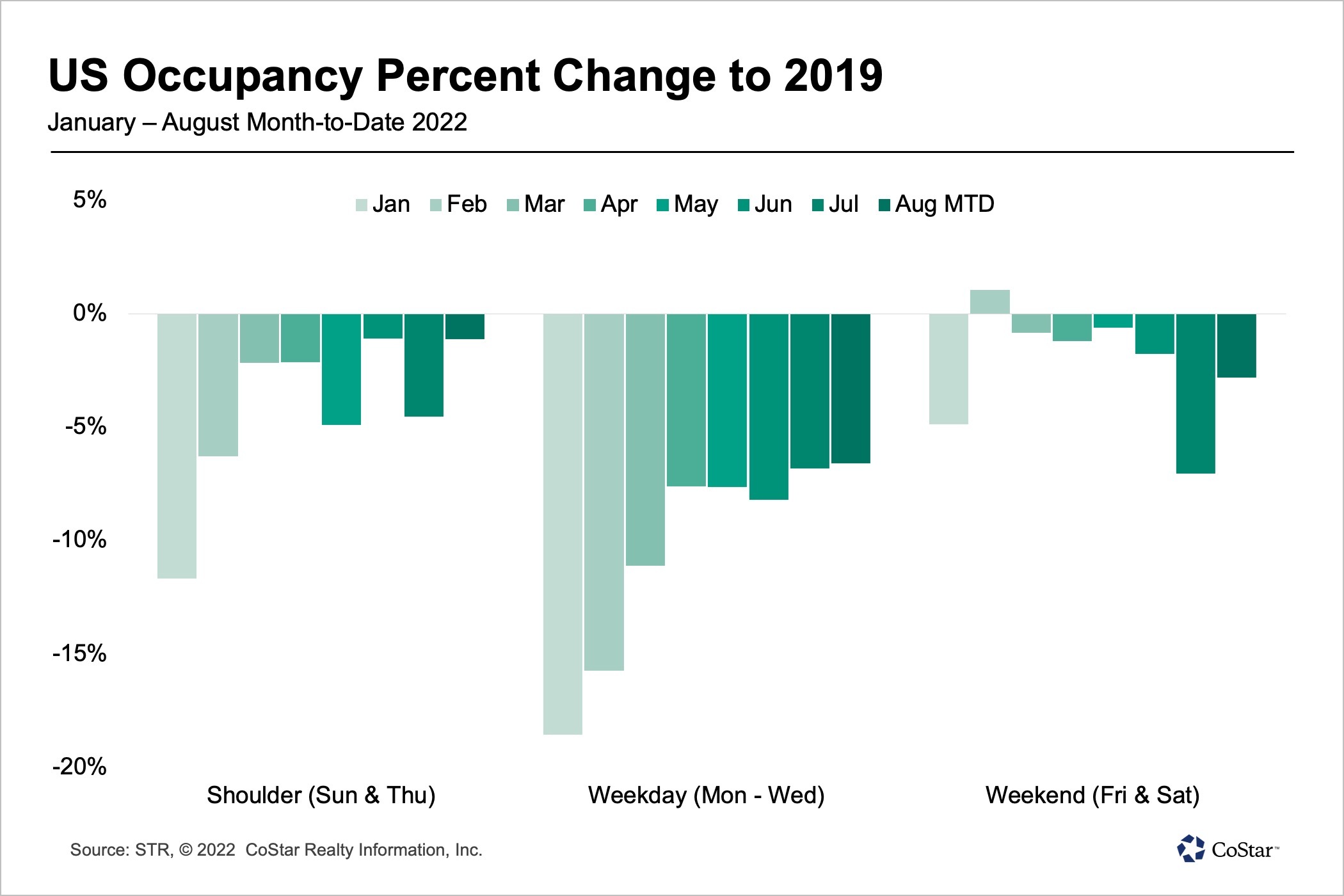
STR’s consumer research conducted in late July 2022 produced telling insights into the state of business travel across the globe. When roughly 400 global business travelers were asked about the types of business travel they will undertake in the future, group gatherings were perceived most positively.
Almost two-thirds of consumers registered positive plans saying they were as likely or more likely to travel compared with pre-COVID-19 for in-person group gatherings, such as industry conferences (63%) or training and team-building events (61%). The increase in remote workers could be influencing this need for teams to gather and may become a more significant business travel segment in the future.
Individual, face-to-face interactions — such as travel to meet with customers and visits to company headquarters — ranked second to group travel types with more than half of those surveyed planning to travel at the same or greater levels. Business travel for individual meetings with colleagues and suppliers/vendors rounded out the list with around half of respondents planning this type of travel at the same or greater levels compared with pre-pandemic times. Worker adaptation and use of video technology makes conducting these types of meetings an attractive alternative, which may explain why the need to travel for these types of meetings is perceived least positively right now.
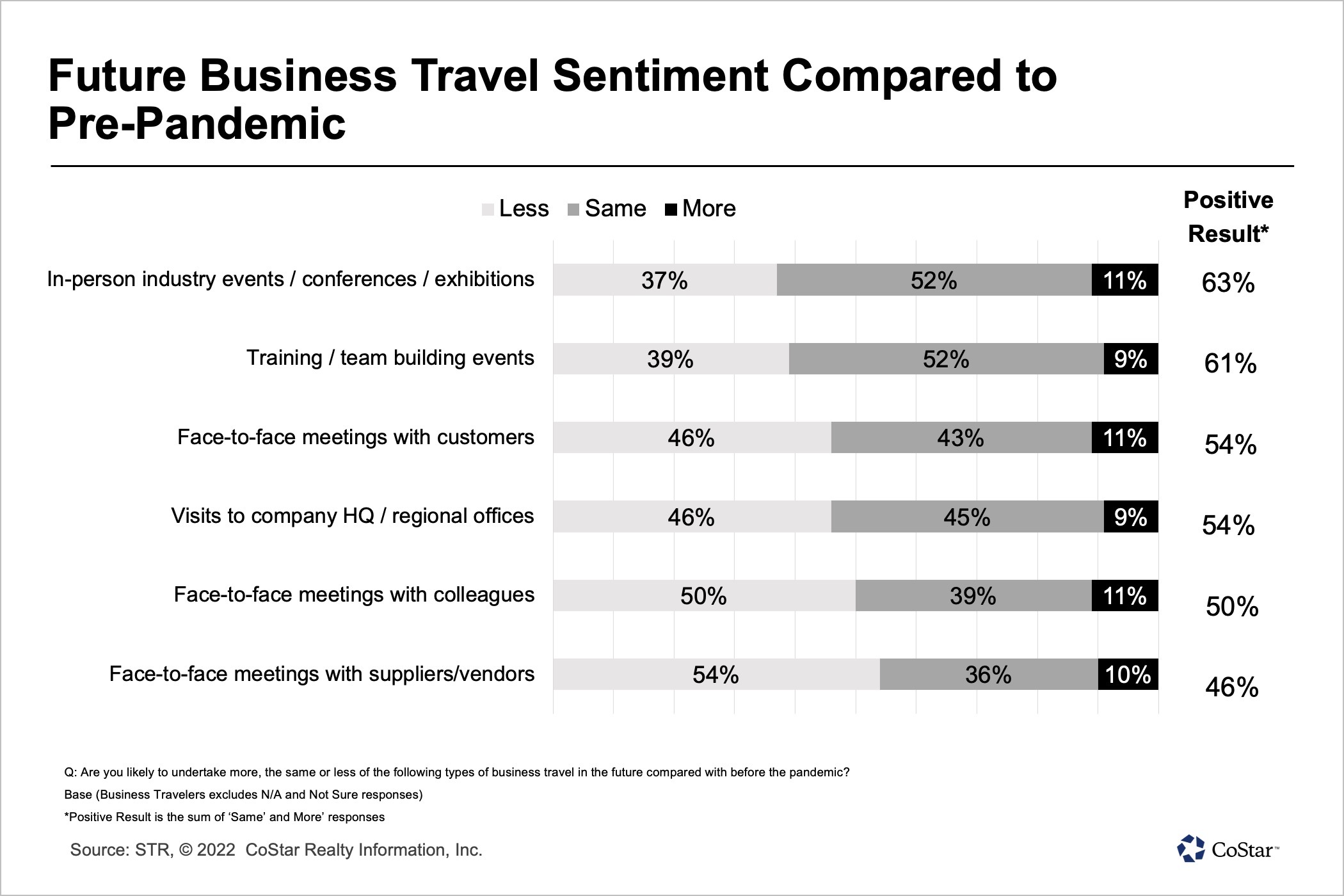
When business travelers were asked their interest in taking an overnight business trip in the next 12 months, almost half responded positively. Of concern is the 40% who are not likely to undertake an overnight business trip. Because of the efficiencies and cost savings experienced by conducting business virtually during the pandemic, there is some business travel that will never return.
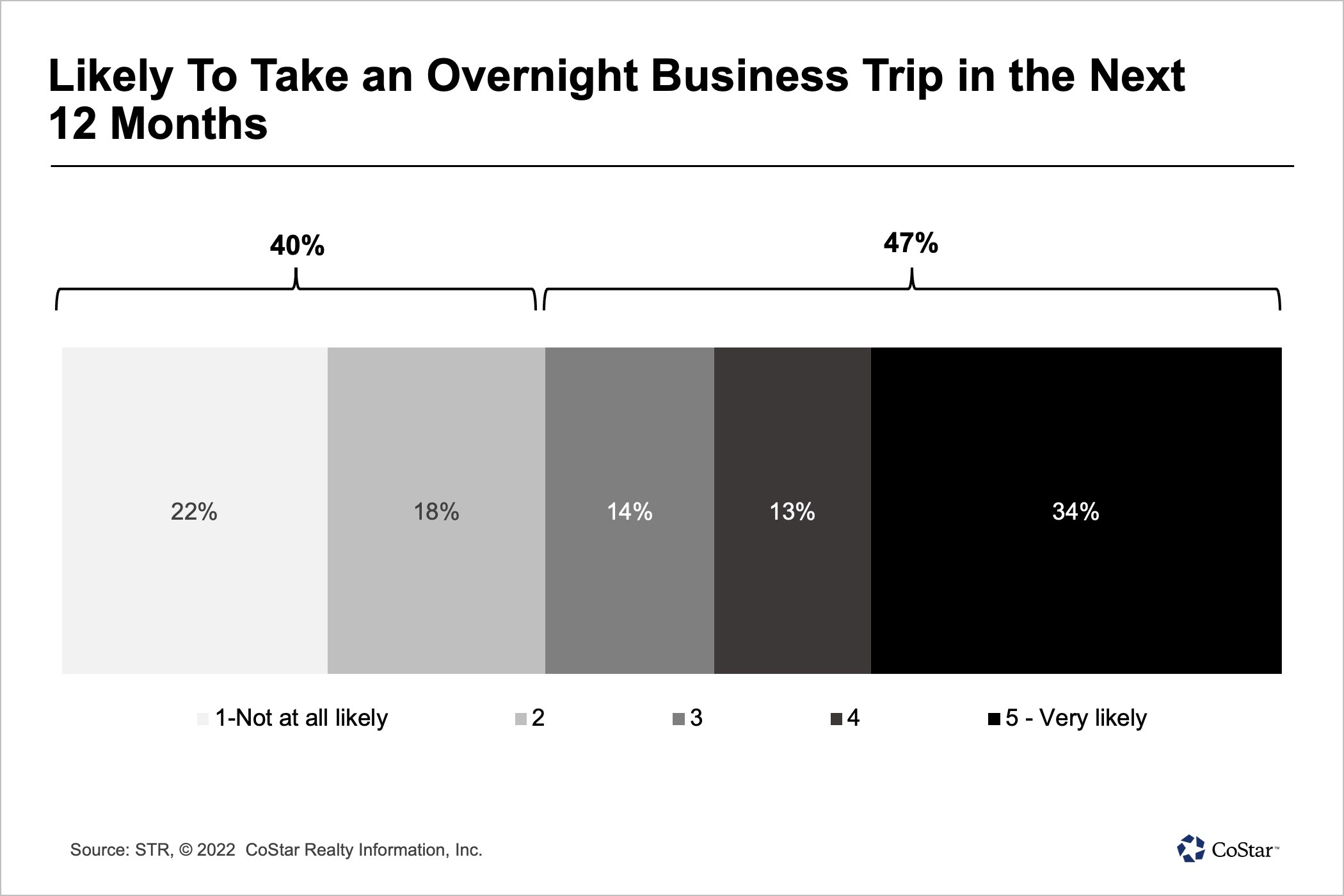
However, focusing on travelers who are “very likely” to travel for business in the next 12 months, the types of business trips they will take increased across the board compared to the overall sample of business travelers. The chart below highlights this increase. One notable shift is the strength of face-to-face meetings with customers, which moved up in intensity when compared to all business travelers. This is a possible sign that road warriors are indeed back.
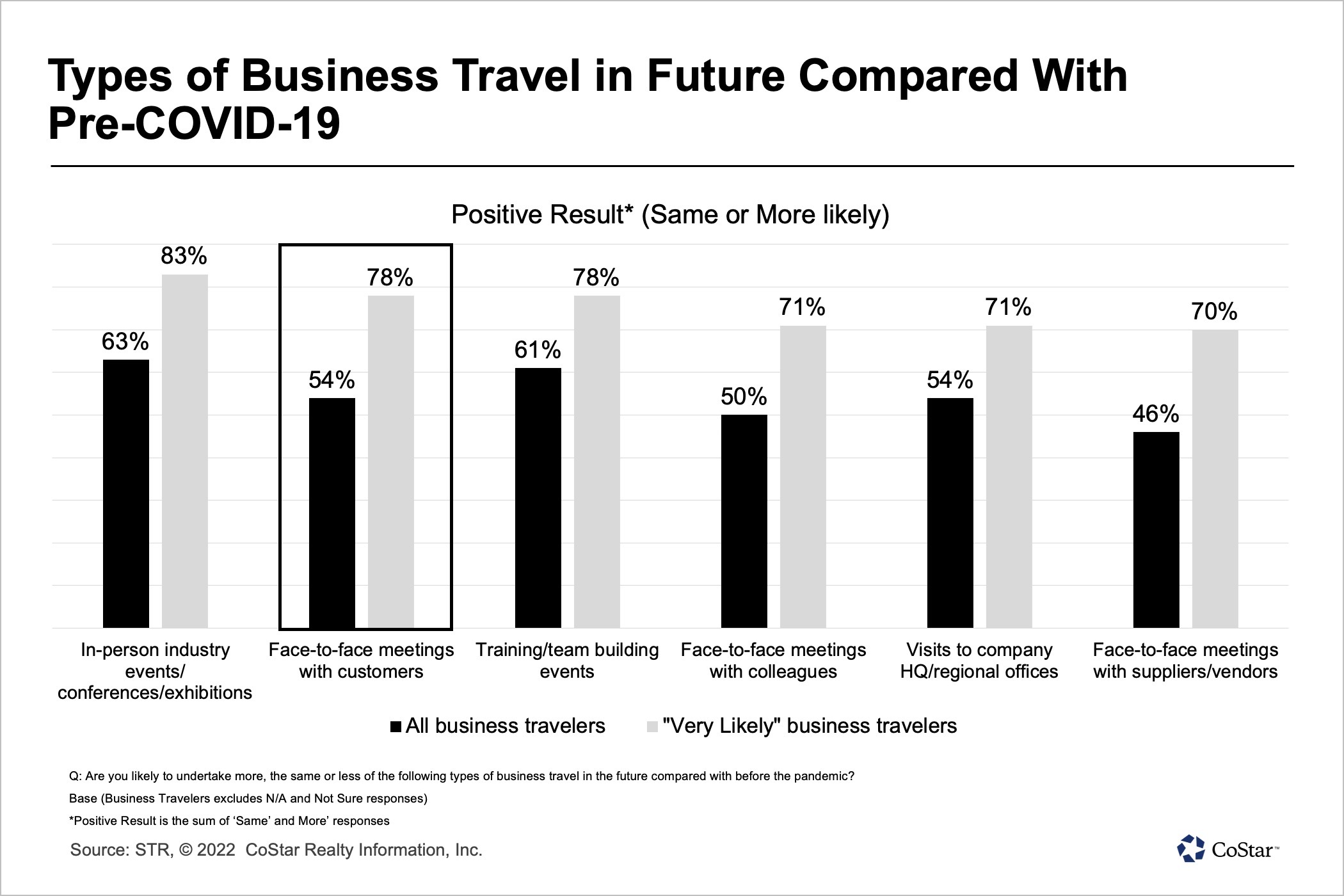
While business travel is showing green shoots of hope, the future is still unclear. The next six months will provide more clarity on the mix of post-pandemic business travel. Will the pent-up demand for in-person events and group meetings continue? Will remote workers unleash a new demand for training and team building events? As large corporations stabilize their corporate travel policies, will road warriors return in full force? The answer to these questions presents the industry with both challenges and opportunities. The pandemic has disrupted traditional behaviors. This disruption provides hotels with opportunity to engage with travelers in perhaps previously unseen ways.
Chris Klauda is senior director of Market Insights at STR.
This article represents an interpretation of data collected by STR, parent company of HNN. Please feel free to contact an editor with any questions or concerns. For more analysis of STR data, visit the data insights blog on STR.com.
Return to the Hotel News Now homepage.
[ad_2]
Source link


